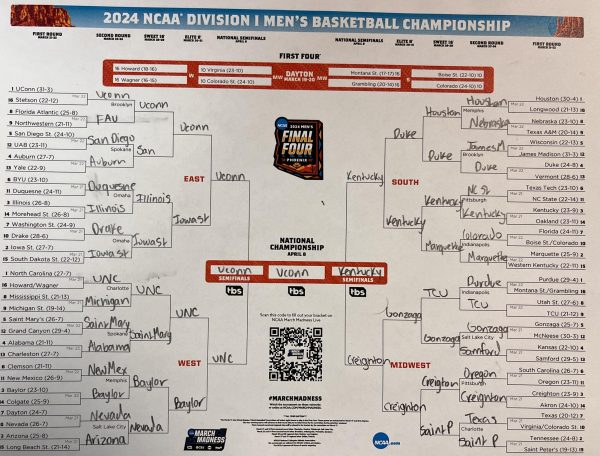Monotonous Melodies
The music that is most prominently heard has taken a tumbling downfall during our generation. The most popular of songs lack creativity and originality and, quite honestly, have become a bore.
Yes, there are the few exceptions that ended up on the top charts and amazed the human population with their unique and artistic manner, but for the most part, top charting songs have not righteously earned their place of prosperity. They have made it to the top through a corrupt music industry that promotes primarily only songs that guarantee success.
As evidenced by the studies conducted by researchers from the Medical University of Vienna in Austria, the more complex a piece is, the less popular it will become. Which explains why the simplest of songs have become increasingly well known and revered.
“We found evidence of a porgressive homogenization of the musical discourse,” artificial intelligence specialist Joan Serrà said. “In particular, we obtained numerical indicators that the diversity of transitions between note combinations – roughly speaking chords plus melodies – has consistently diminished in the last 50 years.”
This tyranny has caused our generation to grow up listening to recurrent melodies and be singly accustomed to the similar stories they tell. They have confined themselves to the domain of repetitive music of astounding simplicity.
For instance, Billie Eilish’s well known song “Bad Guy” has gained more familiarity and admiration than her other equally, or in my opinion, better compositions. Why are “Party Favor” nor “Ilomilo” ever played on the radio? Have they completely ignored the beauty of “Bellyache” and “Bored”?
When you listen to Billie Eilish, one is frequently satisfied by the originality and genius ever present in her songs. This unique style is evident in most of her pieces, including those listed above, but “Bad Guy” has chosen to stray slightly from previous uniqueness to fit in. It has drowned within the vast sea of cloned songs and that is precisely why the music industry chose to publicize it. They do not care about sharing poetic and beautifully unique music. They care only for the profits gained from the homogeneous songs that they strategically designated to be spread across the world.
It is my belief that the mass population of people primarily like these songs because by hearing them and even perhaps singing along with them makes them feel part of something greater. Part of a grand population of individuals who sing to the same beat. To be a part of a voice that surrounds the world. Not particularly because the songs are brilliant and beautiful, but because of the familiarity that these songs bear upon their listeners.
An example of this theory includes the song “Thunder” by Imagine Dragons. It was and evidently is still a popular attraction to many even though, when one strays from the popularity of it, it is a bland and annoying song. Everytime I hear the word thunder repeated over and over like hiccups, I conjure my face into a cringe. This is thus followed by my hand flying towards the radio to change the station.
And even though this song has been played a surplus amount of times, constantly plaguing the music world, people still enjoy it and get excited when they hear it come on the radio. The people are familiar with this song, and thus they love it. Not because it is good, but because it is popular and well known.
“Human beings crave familiarity,” said Tom Barnes in his article “Scientist Just Discovered Why All Pop Music Sounds Exactly the Same.” “Numerous psychological studies show that people choose songs they’re familiar with over songs that more closely match their reported music tastes.”
It is a conformity, this silent obligation that people feel they have in regards to the most popular of songs, and there is no end in sight. No light at the end of the tunnel that signals a drastic change in the monotonous music. And it sadly feels as if there will be no new breakthrough in music to bring our generation out of the darkness of repetitive and ingenuine music.
Dare to listen to the unknown, the songs that you perhaps have never heard of. And you may find that they are more marvelous and indescribably more worthy of the fame and fortune that the trending songs have consistently seized.







